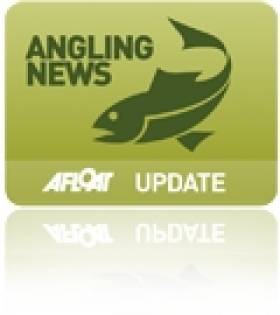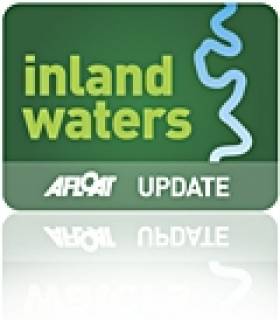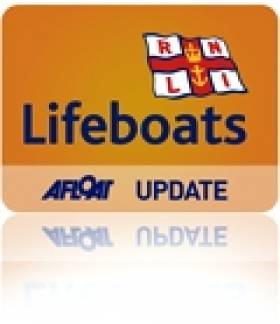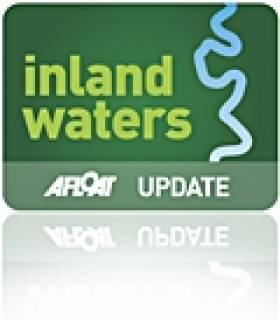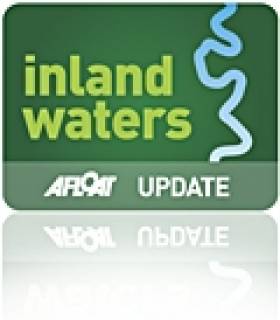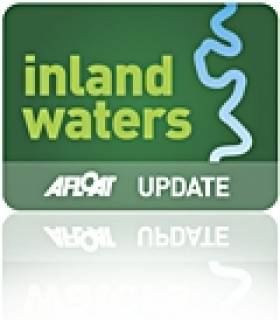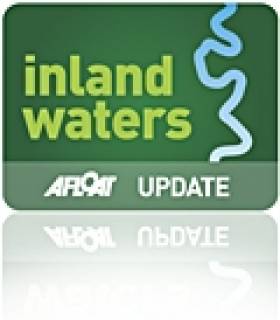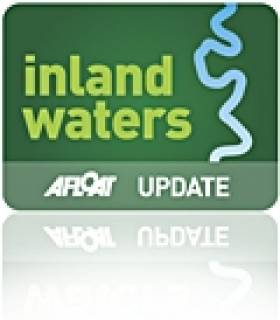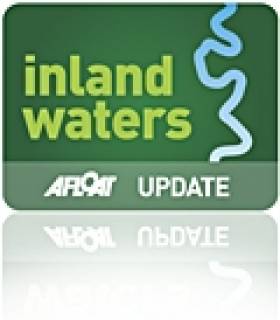Displaying items by tag: inland waterways
#Angling - From today 1 June, Northern Ireland's anglers are banned from selling salmon caught in rivers under new measures from the Legislative Assembly.
As BBC News reports, Minister for Culture, Arts and Leisure Carál Ní Chuilín said that the new rules are "the first step in a series of conservation measures aimed at protecting stocks of the iconic Atlantic salmon".
The rod and line catch sale ban is intended to encourage the practice of 'catch and release' which is set to become mandatory next year, and also brings NI legislation into line with the rest of Britain and the Republic of Ireland.
It comes months after the shocking news that just three out of every 100 wild salmon returned to Northern Ireland's rivers in 2011, prompting concerns that the species has declined to "Dodo levels".
Moves have already been made to control the commercial offshore netting of salmon in order to boost their numbers in the North's waterways.
Another threat to salmon numbers is the rise of invasive species in Northern Ireland's waterways, which as the News Letter reports have cost the economy more than £46 million a year, according to Environment Minister Alex Attwood.
Highlighting the risk to NI's marine wildlife and plantlife, as well as fisheries and agriculture, the minister said "increasing awareness of the threat of invasive species and the need to tackle them is key to achieving success".
A new strategy by the Legislative Assembly will involve partnerships between government, the community and environment groups "working in tandem" to deal with the problems caused by invasive species such as the Japanese sea squirt, detected in Strangford Lough last year.
Shannon Missing Navigation Mark at Athlone
#InlandWaterways - Waterways Ireland advises masters and owners that a green starboardhand navigation mark is reported missing just south of Athlone Lock on the eastern side of the Shannon Navigation opposite the old Athlone Canal entrance.
Masters should proceed with caution when navigating this section of the river.
Elsewhere on the Shannon, a triathlon swimming training course is now set out in Lough Key between Castle Island and the mainland to the west, in an area off the navigable channel.
This will be in place until the end of September and is marked by four yellow buoys. When swimmers are on the course they will be accompanied by a safety boat and will be wearing high visibility swim hats.
Training will take place Mondays, Wednesdays and Fridays from 7am till 8am and Tuesday and Thursday from 6pm till 8pm. Masters are requested to navigate at slow speed and with a low wash when passing the area.
Further information may be had from Donal Kennedy of Lough Key Triathlon Club at 086 109 2626 or [email protected].
Meanwhile, a swimming event will take place on Sunday 9 June from Shannon Harbour to Banagher Harbour.
Masters are requested to navigate at slow speed and with a low wash when passing the area during the event, which will take place between 1pm and 3.30pm.
For more details contact Jerry O’Meara of Shannonside Sub Aqua Club at 087 776 4252 or [email protected].
New Lifeboat Station For Upper Lough Erne
#RNLI - Enniskillen RNLI is to get a new lifeboat station at its Carrybridge base on Upper Lough Erne, it has emerged.
Planning permission for the new build has been passed by Fermanagh District Council and the RNLI’s tendering process is now underway, with a view for building work to commence in late summer.
Once complete, the modern station - much like the new facility for Castletownbere RNLI that opened recently - will replace the existing temporary accommodation which has housed the charity’s volunteer lifeboat crew for the past 11 years.
In order to facilitate the project, the local community is being asked to help the RNLI raise £60,000 (€70,000) towards the cost, which will help Enniskillen RNLI continue to save lives on Lough Erne.
In 2001, Enniskillen became home to the RNLI’s first inland lifeboat station based on Lower Lough Erne.
Due to the overall size and complexity of the lough and its high leisure usage, the decision was taken by the RNLI in 2002 to base a second lifeboat on the upper lough that would work in conjunction with the original lifeboat station on the lower lough.
With two bases, two inshore lifeboats and two rescue water craft, the station has since proved to be one of the busiest in Ireland.
Last year alone, Enniskillen RNLI launched 46 times bringing 50 people to safety. Some 20 of those services were carried out in the dark while the crew spent 169 service hours on the water.
RNLI divisional operations manager Gareth Morrison said he was delighted that planning had now been approved making way for what will be a purpose-built station in a location close to the lough allowing for an efficient launch.
"In an area that receives over 100 days of heavy rainfall a year, it is hard to believe the volunteer crew based at the upper lough operate from just a temporary facility, partly exposed to the elements," said Morrison.
"The crew has to change in a small, damp, metal container and only has a portaloo and wash basin for their comfort. There is nowhere for the crew to shower or dry after a challenging rescue and nowhere for them to gather and train together during the week.
"We want to build a modern station with full crew facilities with areas for the crew to change and train and space to keep their lifeboat and rescue water craft and lifesaving kit safe."
Enniskillen RNLI lifeboat operations manager Davey Robinson said a new station was what the crew deserved.
"At the moment we are operating out of a temporary facility. It is cramped and there are no showers so the crew cannot warm up after a cold, wet and tiring rescue. A new station will be great for the crew. We are a busy station so it is what they deserve."
He added: "It is always reassuring for locals and visitors alike that the RNLI is here to assist them or help their loved ones when they get into difficulty. We try to act as a safety net on Lough Erne and are here 24 hours a day. But we need the right facilities to do that and this new station will help."
Donations and other assistance with fundraising are welcome. For details contact Tony Hiney, RNLI community fundraising manager, at 087 219 8917 or email [email protected].
#InlandWaterways - Waterways Ireland has advised all masters and users of the Erne system that the channel east of Castle Island near Enniskillen will be closed till Tuesday 11 June to facilitate a number of events on the water.
Mariners are directed to follow the marked navigation channel and signs to the west of Castle Island and proceed at a slow speed and with minimum wash. They should note any advise or instructions given by event organisers when in this section of the navigation.
Public jetties in the vicinity will remain accessible throughout, though some minor restrictions may be in place as and when required. Further information is available from the Lough Erne warden at 028 6632 3004.
Elsewhere, there will also be restricted mooring for masters and owners on the River Shannon at Carrick-on-Shannon to facilitate spectator viewing of the Carrick 400 event.
On Sunday 2 June the quay wall from the downstream face of the town bridge to the floating moorings will be out of bounds for mooring from 7pm till midnight.
In other waterways news, recent water quality testing has shown the harbour at Kilcock on the Royal Canal to now be within normal bathing water standards.
Dublin IWAI Boat Rally Descends on Grand Canal Dock
Boats from the Erne, the Shannon, the Barrow, the Royal and the Grand Canal in addition to coastal visitors are gathering this week for the Inland Waterways Association 29th Dublin Rally at the Grand Canal Dock.
Parasite Outbreaks In Roscommon Water Supply
#Pollution - Three dead calves found in a stream that flows into one of Roscommon town's main water sources have been alleged as the source of two outbreaks of the parasitic disease cryptosporidiosis that have seen 13 people treated for stomach-related complaints, as RTÉ News reports.
Council visits to farms in the catchment area of Roscommon's central water supply scheme have since identified 11 cases of poor management of run-off out of 66 occasions.
Residents in Roscommon and Boyle are still being asked to boil all tap water at home until further notice, and have been warned that home filters will not make the water potable.
Restricted Navigation on Grand Canal in Tullamore
#GrandCanal - Waterways Ireland advises masters and owners of vessels that navigation on the Grand Canal from the mouth of the Tullamore branch line to Kilbeggan Bridge will be restricted from this Tuesday to Thursday 21-23 May.
This is to facilitate ongoing works on the Tullamore boardwalk and bridges.
Vessels that wish to transit through this section of the canal may experience some short delays during this time.
New TV Series Unveils 'Secret Life of the Shannon'
#OnTV - Sunday 26 May sees the first of a two-part documentary series on The Secret Life of the Shannon on RTÉ One.
The series will take viewers on a journey along the River Shannon with wildlife cameraman and presenter Colin Stafford Johnson, who spent a year living on the river on a barge, camping on its banks and exploring its tributaries in a traditional canoe.
His quest was to film the natural history of the 340km of the Ireland's longest inland waterway as it has never been seen before - and if the above video is anything to go by, he's done an incredible job.
The Secret Life of the Shannon part of the RTÉ Goes Wild month-long celebration of Ireland's wildlife on television, radio and online.
Episode one will be broadcast on Sunday 26 May at 6.30pm on RTÉ One, with the second episode to follow at the same time on Sunday 2 June.
Loughrea Lake Fish Kill Investigated
#FishKill - Galway Bay FM reports on an investigation into a fish kill discovered in Loughrea Lake yesterday 12 May.
Inland Fisheries Ireland staff have attended the scene after being alerted by the public, discovering some 100 dead perch in the water.
However, it is believed the fish died as a result of a natural phenomenon, as no dead fish of any other species was found.
Such mortalities in the wake of the perch spawning season are not uncommon due to the stresses it puts on the fish, leaving them susceptible to infection.
Water Patrollers For Royal Canal From Kilcock To Dublin
#InlandWaterways - Waterways Ireland advises that water control and boat assistance on the Royal Canal from Lock No 12 to 17 between Kilcock and Dublin (Castleknock) over the summer period will be provided by a full-time Water Patroller with assistance on weekends.
Des Phillips (contact 087 248 5754) will be on duty Monday to Friday from 8.30am till 5pm and on Sundays from 8.30am till 12.30pm.
PJ Massey (contact 087 985 7019) will provide water control and boat assistance on Saturdays from 8.30am till 12.30pm.
On Saturday and Sunday afternoons from 2pm till 6pm, cover will be provided by either Damien McDermott, JJ Brennan or David Whelehan (contact 087 177 8563).
Note that passage through Locks No 16 and 17 may not be possible outside of the hours listed above. Masters should therefore contact the relevant water patroller to arrange assistance through these locks.



























